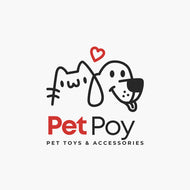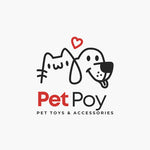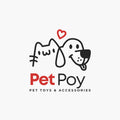In today's fast-paced world, we want the best for our pets, including their food. Just like us, animals need a well-balanced diet to stay healthy and active. But with so many options available on the market, how do you know which pet food is the right choice? Understanding pet nutrition is essential to ensure that your furry friend gets the nutrients they need to thrive.
The Importance of a Balanced Diet
A balanced diet is crucial for your pet's overall health and well-being. It provides them with the necessary nutrients to support their immune system, maintain a healthy weight, promote proper growth, and ensure shiny fur and strong teeth. A lack of proper nutrition can lead to various health issues, including obesity, allergies, and digestive problems.
Reading the Ingredients List
When evaluating pet food, the first step is to carefully read the ingredients list. This will give you valuable insights into the quality and nutritional value of the product. Look for high-quality protein sources, such as chicken, fish, or lamb, listed as the main ingredient. Avoid foods that primarily consist of fillers like corn, wheat, or soy, as they offer limited nutritional value.
Additionally, it's essential to consider the source of the ingredients. Some pet food companies prioritize locally sourced and organic ingredients, which can provide added assurance of quality.
Understanding Guaranteed Analysis
Once you've reviewed the ingredients list, the next step is to examine the guaranteed analysis. This section provides crucial information regarding the percentages of proteins, fats, fibers, and other nutrients present in the food. It's important to remember that different animals have different nutritional needs, so consult with your veterinarian to determine the ideal percentages for your pet.
Generally, high-quality pet food will contain a higher percentage of protein and lower percentages of fat and carbohydrates. Avoid products that have excessive levels of fillers, artificial additives, or preservatives.
Consider Age, Breed, and Activity Level
When selecting pet food, consider your pet's age, breed, and activity level. Puppies, kittens, senior pets, and pregnant or lactating animals have specific dietary requirements that may differ from adult pets. Large breed dogs may benefit from formulas tailored to their needs, while small breed dogs might have different caloric needs.
Furthermore, an active dog or cat might require a higher calorie intake than a sedentary pet. Understanding your pet's specific needs will help you find the right food to support their growth, energy levels, and overall health.
Avoid Artificial Additives and Fillers
Artificial additives, such as food dyes, flavors, and preservatives, offer no nutritional value to pets and can lead to adverse health effects. Look for pet food products that prioritize natural and organic ingredients while avoiding artificial additives.
In addition, fillers like corn, wheat, and soy can be difficult for pets to digest and may contribute to allergies or digestive issues. Choose food options that avoid these fillers and instead focus on protein-rich ingredients.
Grain-Free vs. Grain-Inclusive
There has been ongoing debate regarding the benefits and drawbacks of grain-free diets for pets. While some pets benefit from a grain-free diet, such as those with certain allergies, others may thrive on a diet that includes grains.
Your veterinarian can help you determine the best approach for your pet based on their specific needs and any potential dietary restrictions. It's important to note that not all grain-free pet foods are created equal, so always read the ingredients list and do your research.
Consult with Your Veterinarian
Your veterinarian is an invaluable resource when it comes to understanding your pet's nutritional needs. They can assess your pet's overall health, consider any specific dietary requirements, and make recommendations tailored to your pet's unique needs.
Regular visits to the veterinarian will help ensure that your pet's diet is optimized for their health and well-being. They can also provide guidance on portion control to prevent obesity and other weight-related issues.
Transitioning to a New Pet Food
If you decide to switch your pet's food, it's important to introduce the new food gradually. A sudden change in diet can lead to digestive upset. Start by mixing a small amount of the new food with the old food, gradually increasing the proportion of the new food over several days.
Observe your pet during the transition period and consult with your veterinarian if you notice any adverse reactions or concerns.
Maintain a Healthy Weight
Weight management is essential for pets, as obesity can lead to a range of health problems. When choosing pet food, consider the calorie content and feeding guidelines. Portion control is crucial to ensure that your pet receives the right amount of food for their size and activity level.
If your pet is overweight, consult with your veterinarian for an appropriate weight management plan, which may include a specific diet and exercise routine.
Consider Your Pet's Unique Needs
Just like humans, pets have unique dietary needs based on their individual health conditions or sensitivities. Some pets may require specialized diets to manage certain health issues, such as allergies, urinary tract problems, or joint pain.
If your pet has any specific health concerns, consult with your veterinarian to determine if a specialized diet is necessary and what ingredients to look for or avoid.
Choosing the Right Pet Food
When selecting pet food, always prioritize quality over price. Remember, the nutritional value directly impacts your pet's health and well-being in the long run. Cheap, low-quality pet food may seem economical at first, but it can lead to costly vet bills down the line.
Research different brands, read customer reviews, and look for companies with a solid reputation for producing high-quality pet food. It's also a good idea to consult with other pet owners or join online communities dedicated to pet nutrition to gather additional insights.
Conclusion: A Healthy Pet is a Happy Pet
Understanding pet nutrition is crucial for ensuring that our beloved furry friends lead long and healthy lives. By reading the ingredients list, considering your pet's specific needs, avoiding artificial additives and fillers, and consulting with your veterinarian, you can choose pet food that provides all the essential nutrients for their overall well-being.
Remember, a healthy pet is a happy pet. Invest time and effort into researching and selecting the right pet food, and you'll be rewarded with a companion that thrives on a well-balanced diet.










